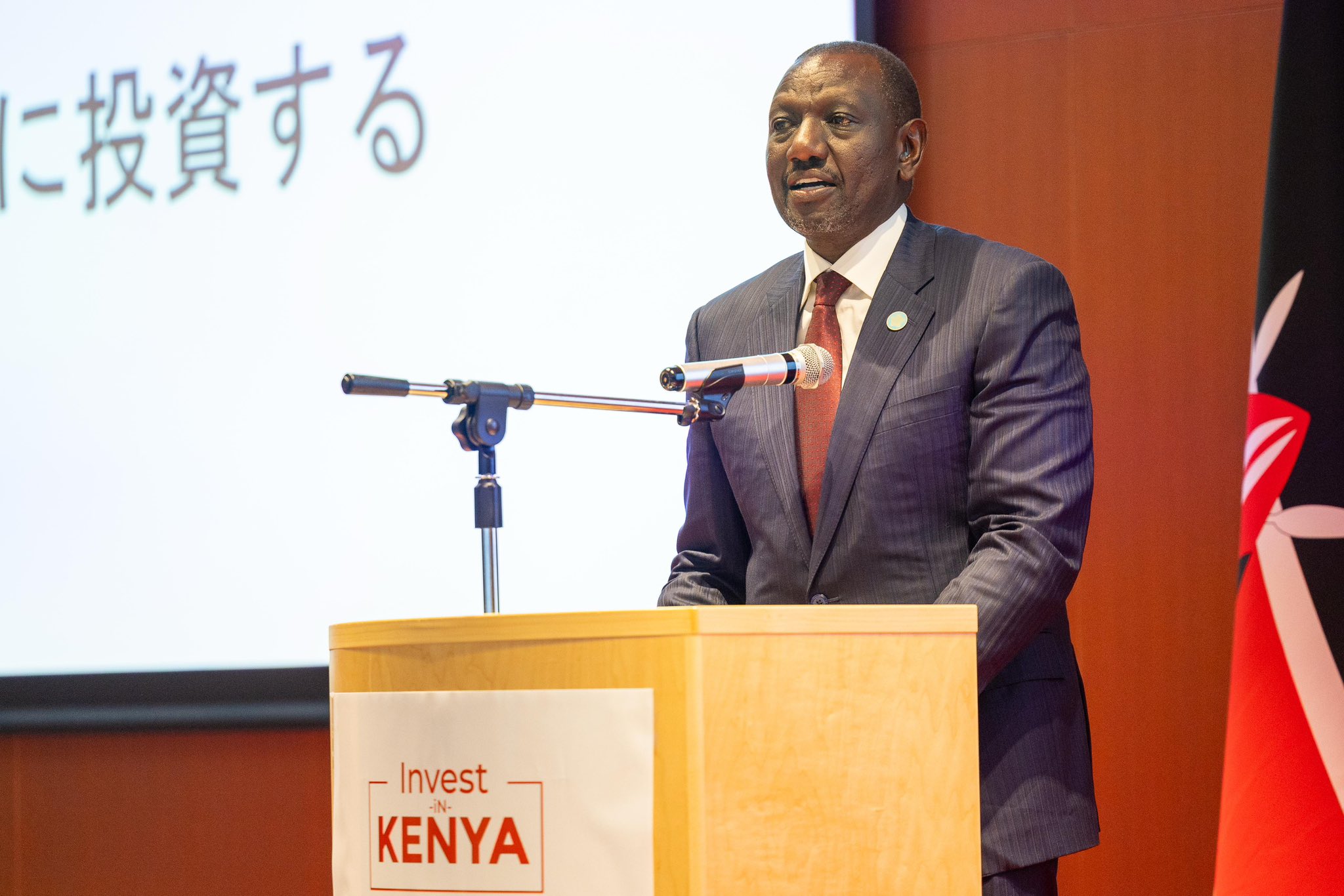Politics
Why Ruto Is Going After MPs on Corruption: A Strategic Move Under International Pressure

Political analysts and lawmakers see President’s anti-graft campaign as calculated effort to appease global partners while silencing parliamentary critics
President William Ruto’s recent corruption allegations against Parliament and formation of a multi-agency anti-graft task force are being viewed by political observers as a calculated strategy driven by mounting international pressure rather than genuine reform efforts.
The President’s decision to publicly accuse MPs of taking bribes, establish new anti-corruption mechanisms, and push through key legislation appears designed to demonstrate strong governance credentials to international partners while simultaneously neutralizing parliamentary oversight of his administration.
International Pressure Mounts
According to political analysts, Ruto’s anti-corruption posture is largely motivated by external pressures from key international partners. The timing coincides with strained relationships with major Western allies and upcoming diplomatic engagements.
“The President may be appealing to the international community, especially the US, which remains influential at the UN. By posturing as tough on graft, he hopes to safeguard Kenya’s global standing,” said Suba Churchill, executive director of the Kenya National Civil Society Centre.
The pressure is particularly acute given an influential Republican Senator Jim Risch’s petition to review Kenya’s diplomatic and trade relations with America, potentially stripping Kenya of its non-NATO ally status. This comes as Kenya faces criticism from the United States, Germany, and France over governance issues.
Unlocking Frozen Funds
The anti-corruption drive appears strategically timed to unlock critical international funding. The recent passage of the Conflict of Interest Bill moved Kenya closer to accessing Sh97 billion frozen by the World Bank, while anti-money laundering legislation was cited by Ruto as among laws MPs allegedly took bribes to frustrate.
Kiambu Senator Karungo Thang’wa argues that external lenders, particularly the International Monetary Fund and World Bank, are pushing these legislative changes as loan conditions.
“The President seems to be a man under pressure, especially after the passage of the Conflict of Interest Bill, to walk the talk on corruption by the IMF, which is pushing some of these legislations,” Thang’wa observed.
Silencing Parliamentary Oversight
Critics suggest Ruto’s corruption allegations serve a dual purpose: appeasing international partners while weakening Parliament’s ability to investigate controversial executive decisions.
The timing of the bribery claims has raised eyebrows, coming as Parliament conducts investigations into government scandals including the e-Citizen project and state firm privatizations.
“This might also be a plot to try to silence dissenting political voices by saying ‘if you are not with me then I will arrest you’ so that people fear to talk against him,” warned Saboti MP Caleb Amisi.
Senator Thang’wa accused the President of hypocrisy, claiming the executive has routinely used financial inducements to secure parliamentary support for controversial legislation, including the impeachment of former Deputy President Rigathi Gachagua.
Parliamentary Pushback
The allegations have triggered strong reactions from lawmakers who accuse Ruto of selective application of anti-corruption measures.
Busia Senator Okiya Omtatah criticized the formation of the multi-agency task force, arguing the President lacks authority to create such a body when existing institutions like the Ethics and Anti-Corruption Commission already have anti-graft mandates.
“He is just trying to divert attention on his governance failure. The multi-agency team is supposed to be a laundry machine to clear him and his friends from allegations of corrupt conduct,” Omtatah said.
Vihiga Senator Godfrey Osotsi went further, suggesting the President’s conduct toward Parliament constitutes impeachable behavior, arguing that Ruto knows the proper procedures for addressing parliamentary misconduct but chose public attacks instead.
Academic Perspective
Pan African Christian University lecturer Martin Oloo described the President’s approach as hypocritical, noting that both the executive and legislature have engaged in corrupt practices.
“The Executive has often bribed legislators to secure controversial Bills, while MPs arm-twist the government for facilitation fees,” Oloo observed, characterizing the situation as “the pot calling the kettle black.”
Senate Speaker Amason Kingi dismissed the President’s allegations, noting they lacked specifics such as naming individual senators. He emphasized that constitutional provisions exist for dealing with errant legislators and called for proper channels to be followed.
National Assembly Speaker Moses Wetang’ula took a more conciliatory approach, suggesting upcoming leadership meetings would provide opportunities to address the issues directly.
As Kenya prepares for the UN General Assembly in September and navigates complex international relationships, President Ruto’s anti-corruption campaign appears aimed at rehabilitating his administration’s image globally while managing domestic political challenges.
However, critics argue that without addressing the executive’s own role in corruption and following proper constitutional procedures, the campaign risks being seen as political theater rather than genuine reform.
The success of this strategy will likely depend on whether international partners view the moves as substantive governance improvements or merely cosmetic changes designed to unlock funding while avoiding accountability.
Kenya Insights allows guest blogging, if you want to be published on Kenya’s most authoritative and accurate blog, have an expose, news TIPS, story angles, human interest stories, drop us an email on [email protected] or via Telegram
-

 Grapevine2 days ago
Grapevine2 days agoAlleged Male Lover Claims His Life Is in Danger, Leaks Screenshots and Private Videos Linking SportPesa CEO Ronald Karauri
-

 Lifestyle5 days ago
Lifestyle5 days agoThe General’s Fall: From Barracks To Bankruptcy As Illness Ravages Karangi’s Memory And Empire
-

 Americas1 week ago
Americas1 week agoEpstein Files: Bill Clinton and George Bush Accused Of Raping A Boy In A Yacht Of ‘Ritualistic Sacrifice’
-

 Business2 weeks ago
Business2 weeks agoCooking Fuel Firm Koko Collapses After Govt Blocks Sh23bn Carbon Deal
-

 Business2 weeks ago
Business2 weeks agoABSA BANK IN CRISIS: How Internal Rot and Client Betrayals Have Exposed Kenya’s Banking Giant
-

 Investigations7 days ago
Investigations7 days agoEpstein Files: Sultan bin Sulayem Bragged on His Closeness to President Uhuru Then His Firm DP World Controversially Won Port Construction in Kenya, Tanzania
-

 News1 week ago
News1 week agoAUDIT EXPOSES INEQUALITY IN STAREHE SCHOOLS: PARENTS BLED DRY AS FEES HIT Sh300,000 AGAINST Sh67,244 CAP
-

 Business1 week ago
Business1 week agoKRA Can Now Tax Unexplained Bank Deposits













